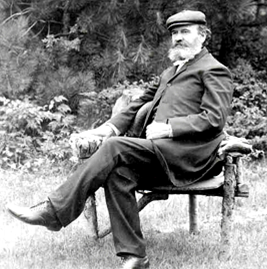Cautious Co-belligerence? The Late Nineteenth-Century American Divine Healing Movement and the Promise of Medical Science
Denials and Critiques of Medical Science
Certainly, however, the endorsement of physicians and medical treatment by those involved in the Divine Healing movement was cautious and limited. While they affirmed the recent real progress made by medical science and affirmed its ability to diagnose and alleviate the physical cause of disease, they also made some stark denials that set them clearly at odds with the medical community. While some of the promoters of Divine Healing had critiques that were peculiar to themselves, there were five critiques they all held in common and that were, for each of them, the central critiques of medical science.
Denied There is Either Scriptural Precedent or Prescription to Consult Physicians or to Use Medicine
“[Jesus] made no provision for the arrest of the stream of divine manifestations which he had started, either in the next age or in a subsequent age.”
— A. J. Gordon
Denied Cessationist Theology

Albert Benjamin Simpson (1843 – 1919).
Second, they all denied the doctrine of cessationism that affirmed that, upon the establishment of the Church, the age of miracles came to an end.31 Simpson asserted that the lack of the historic manifestation of Divine Healing, which he did not deny, was based on the promotion of a theology of cessation and the consequential lack of belief in its possibility, rather than on a change in the character or ministry of God in Christ.32 Montgomery asserted that unbelief in the continuation of the miraculous was the reason that most people, both Christian and non-Christian, did not bother to pursue Divine Healing.33 Gordon argued that, with the establishment and rule of a cessationist theology, average Christians who might otherwise assume the ongoing exercise of the supernatural were bullied into submission and unbelief.34 They all noted that cessationism could not be sustained by Scripture.35 Gordon wrote, “[Jesus] made no provision for the arrest of the stream of divine manifestations which he had started, either in the next age or in a subsequent age.”36 To those who would want to limit the miraculous gifts to the founding era of the Church, he wrote, “[A]ntiquity has no monopoly of God’s gifts, and ancient men as such had no entrée into God’s treasurehouse which is denied to us.”37 He also showed how cessationism in regard to Divine Healing could not be sustained by a thorough study of Church history.38 For these teachers, the ministry of God in Christ did not change from one era to another.39 In one of his more famous hymns, Simpson reminded people that the Jesus who walked the Earth and healed was the same Christ “Yesterday, Today, Forever,” and his ministry did not significantly change either.40
The Divine Healing practitioners credited the new instances of Divine Healing that were being manifest in their day to the renewed faith of some not only in the power of Christ but in the subsistence of the miraculous. That is, a more scriptural theology, or as Gordon called it, “primitive faith,” was reemerging in the church and, consequently, so was a more scriptural practice and manifestation.41 This resurrection of a more scriptural theology, though, was not understood to be merely coincidental. It was, rather, part of the restoration of biblical Christianity that they believed would precede the return of Jesus Christ.
With a reviving faith, with a deepening spiritual life, with a more marked and Scriptural recognition of the Holy Spirit and the Living Christ, and with the nearer approach of the returning Master Himself, this blessed gospel of physical redemption is beginning to be restored to its ancient place, and the Church is slowly learning to reclaim what she never should have lost.42
Denied the Legitimacy of Medical Science’s Exclusive Naturalism/Materialism
“… [P]hysical redemption is beginning to be restored to its ancient place, and the Church is slowly learning to reclaim what she never should have lost.” — A. B. Simpson
Category: Church History, Summer 2010


